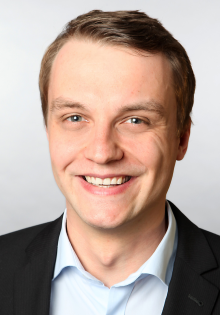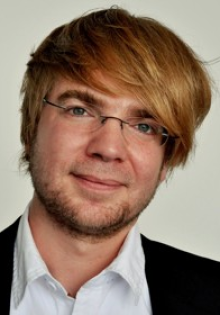No need for dry ice
A broad-based vaccination strategy is seen as a beacon of hope for a way out of the corona crisis. But the vaccine currently used in Germany has its pitfalls: Pfizer/BioNTech's SARS-CoV-2 vaccine is extremely temperature-sensitive. To guarantee its longevity and to be able to transport the vaccine doses over long distances, a well-insulated transport box is needed on the one hand and an additional cold reservoir on the other. So far, dry ice has been used for this purpose - solid carbon dioxide that evaporates at a temperature of minus 78°C, i.e. it changes its phase directly from the solid to the gaseous state. Since CO2 concentrations of as little as eight to ten percent in the air we breathe can be lethal, the amount that can be used in aircraft and transport vehicles, for example, is limited. Scientists at Paderborn University are therefore conducting research into so-called phase change materials (PCMs) that can be filled into cooling packs and achieve the required cooling temperatures of minus 80°C to minus 60°C. These PCM make it possible to avoid the release of carbon dioxide, which is harmful to health, while at the same time ensuring a proper cooling of the vaccines.
Efficient energy storage
"Phase change materials can reversibly change their aggregated state. When they change from solid to liquid, for example, they absorb thermal energy at a constant temperature and release this latent energy again at the same temperature level during crystallization. In this way, thermal energy can be stored on a large scale in a small vloume and at a constant temperature," explains Dipl. Wirt.-Ing. Gerrit Sonnenrein, managing director of the Competence Center for Sustainable Energy Technology (KET) at Paderborn University. PCM have already been the subject of research at the strongly interdisciplinary center for several years: "Both in terms of material development and concrete integration of PCM into a wide range of interdisciplinary applications," adds Sonnenrein.
"Everyone is familiar with the physical principle of PCM as energy storage devices from everyday life: the ice cube in a drink changes its aggregate state from solid to liquid, absorbing energy in the process and thus having a cooling effect. The advantage over the dry ice used up to now is thus also obvious: No gaseous phase occurs. The material can therefore be used in classic cooling packs and is also much more sustainable, sine it can change its state multiple times."
Multiple simulation variants for the optimal storage structure
Prof. Dr.-Ing. Eugeny Kenig, Chairman of the KET-board and holder of the Chair of Fluid Process Engineering, states: "Last year, a research project on the integration of PCM in high-performance cold storage systems was launched, in which many of the theoretical fundamentals, such as the mathematical modeling of the phase transitions, had already been developed. This has now enabled us to relatively easily implement appropriate simulation models based on new material properties obtained from our project partner Axiotherm. Therefore, we were already able to test the performance of low-temperature PCM for cooling the BioNTech vaccine."
"Implementing the right simulation setup can be quite challenging," says Matti Grabo, M.Sc. research associate at the Chair of Fluid Process Engineering. "In addition to the material properties of the PCM to be used, the continuously changing environmental conditions during the transport of the vaccine have to be considered for the simulations as well. Since there will be different environmental conditions during transport by airplane compared to, for example, truck transport in South America, several simulation variants usually have to be run in order to find the optimal storage structure," Grabo continued. For practical applicability, the main task was also to determine the optimum temperature range for the phase change. On the one hand, the maximum temperature of minus 60 °C specified by the vaccine manufacturer must be maintained; on the other hand, the temperature required for the PCM to solidify should be as high as possible. "In principle, of course, there are ultra-low temperature freezers cooling down to minus 86°C, but these are not accessible everywhere, and certainly not worldwide. Through our simulation studies, we were able to estimate that with optimal insulation, a phase change in the range of minus 63 to minus 62°C is sufficient to keep the vaccine cooled for several days," adds Sonnenrein.
Dirk Büttner, responsible project manager at Axiotherm GmbH, feels well prepared for the expected demand of cooling equipment. "Thanks to the research results of KET, we were able to quickly convince our partners - including manufacturers of transport boxes - and have already begun sampling. And since last year we expanded our production capacities for the classic temperature ranges of minus 20°C and plus 2 to 8°C, as required for the Moderna and AstraZeneca vaccines, we are now able to react quickly in regards to the temperature intervals as well. In addition to the development of the PCM, a particular challenge was the development of the cold packs themselves, since at such low temperatures the plastics usually become brittle."





